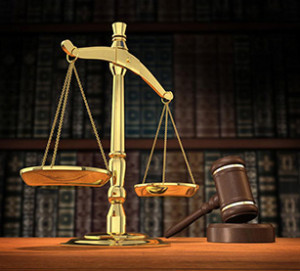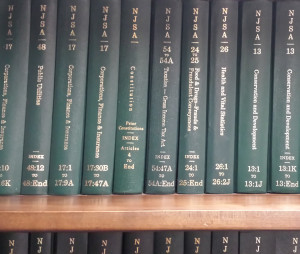Estate Litigation Attorney Burlington County NJ
 Estate litigation has and continues to rapidly evolve and as such, clients seeking representation in this area are encouraged to seek experienced attorneys who specialize in this field. Our law firm is proud of its reputation as experts in this area of the law. Our lawyers are committed to providing effective and efficient representation in all matters involving estate and probate litigation. Our firm is conveniently located in Cherry Hill, New Jersey, and our attorneys are regularly before the probate courts located in Camden, Burlington, Gloucester, Atlantic, Ocean, Middlesex, Salem, and Cape May Counties.
Estate litigation has and continues to rapidly evolve and as such, clients seeking representation in this area are encouraged to seek experienced attorneys who specialize in this field. Our law firm is proud of its reputation as experts in this area of the law. Our lawyers are committed to providing effective and efficient representation in all matters involving estate and probate litigation. Our firm is conveniently located in Cherry Hill, New Jersey, and our attorneys are regularly before the probate courts located in Camden, Burlington, Gloucester, Atlantic, Ocean, Middlesex, Salem, and Cape May Counties.
Estate or probate litigation usually results from one of three situations:
- Contesting a Will, Trust or other Testamentary Document
- Contesting Unlawful Lifetime Transfers
- Protecting Your Rights During the Administration of an Estate
Contesting a Will, Trust or other Testamentary Document
When seeking to contest a Will, Trust or other testamentary instrument, a client should promptly seek counsel to represent them. Under New Jersey law, a resident of this state, generally, only has FOUR (4) MONTHS from the date the Will is admitted to probate to institute litigation in order to challenge the validity of that document. Because of this limited time frame, when suspicious activity arises, such as a refusal by an executor to produce a copy of the decedent’s Will, individuals are encouraged to move quickly to protect their rights.
Wills, Trusts and other testamentary instruments are most commonly challenged on the basis of undue influence or a lack of testamentary intent. A lack of testamentary intent generally relates to whether an individual has sufficient capacity to execute their Will, namely, did they understand the nature of their actions and the effects which would result there from. Alternatively, an undue influence claim often arises where an individual has a diminished capacity and another individual unlawfully or improperly influences them. Undue influence is also implicated where an individual’s will is overborne by threat or intimidation. Both of these claims are factually dependent and therefore must be analyzed and developed based upon communications with the decedent, communications with family members, medical records, financial records and a variety of other evidence.
Often the evidence necessary to develop a client’s claim can be compromised or destroyed. In addition, individuals who cause an elderly person to execute a Will or other document contrary to their intent often do so for financial reasons and as such, typically seek to deplete the decedent’s estate as quickly as possible. Because of the foregoing, the attorneys at our firm utilize comprehensive discovery demands and aggressive motion practice to secure both the assets in dispute and the evidence necessary to establish our client’s case.
There are a variety of other Will contests which can arise such as after discovered Wills or codicils, forgery or alteration, the validity of a copy of a Will and the unlawful destruction of a Will. For more information concerning these or other issues, please feel free to arrange for an appointment with an attorney at our firm.
Contesting Unlawful Lifetime Transfers
 Undue influence, as well as a variety of other unlawful activities often commence prior to an individual’s passing. As such, the attorneys at our firm, in addition to assessing the validity of a Will, typically review lifetime transfers in order to determine whether additional claims may be brought. Significant transfers of property or monies within three years of an individual’s passing are generally suspect and should be reviewed.
Undue influence, as well as a variety of other unlawful activities often commence prior to an individual’s passing. As such, the attorneys at our firm, in addition to assessing the validity of a Will, typically review lifetime transfers in order to determine whether additional claims may be brought. Significant transfers of property or monies within three years of an individual’s passing are generally suspect and should be reviewed.
In recent years, there has been a significant increase in unlawful transfers of a decedent’s funds prior to their passing. The most common method by which these funds are unlawfully procured is through the use of a power of attorney or the establishment of a joint account. Jointly titled accounts pass outside of the Will and in accordance with the terms of the joint account. Normally, these accounts are payable to the surviving accountholder and as such, may result in substantially all of the decedent’s assets passing to the joint accountholder as opposed to those individuals named in the decedent’s Will. Because many elderly individuals need assistance in paying their bills and managing their finances, they often, unknowingly, establish joint accounts which are contrary to their testamentary intent.
Another method by which an individual’s assets are unlawfully depleted prior to their passing can result from the improper use of a power of attorney. A power of attorney is a document by which another individual can act on your behalf, typically, with respect to financial matters. These documents, like Wills, can be procured by way of undue influence and are often signed in conjunction with an unlawfully procured Will. With a power of attorney in hand, an individual can quickly deplete an elderly person’s estate by writing checks to themselves, paying their bills with the elderly person’s assets, transferring property to themselves and by designating themselves as beneficiaries to various accounts and life insurance policies.
Where an elderly person’s assets are converted through the use of a power of attorney, additional claims can be brought such as breach of fiduciary duty, fraud, and conversion. Our attorneys are experienced in pursuing these claims and will vigorously represent you in these matters. For more information concerning these or other issues, please feel free to arrange for an appointment with an attorney at our firm.
Protecting Your Rights During the Administration of an Estate
While there is often the need for litigation with respect to estate matters, sometimes, issues can be resolved in a less formal manner. Our attorneys have resolved numerous matters related to the administration of an estate without having to file a formal complaint. With their experience and knowledge you can be sure that your rights are being protected and that you will receive, as a beneficiary of an estate, the bequest or distribution intended.
Unfortunately, many individuals are not aware of their rights as a beneficiary and as such, receive less than they should under an individual’s Will or Trust. As a beneficiary, you are entitled to a copy of the decedent’s will and an accounting of the decedent’s assets. You can also object to the accounting and require the executor or administrator to provide proof of purported expenses. In addition, you can object to how certain fees and expenses are computed, such as the administrator’s fees or the fees charged by an attorney for the estate.
Some of the most frequently asked questions, with respect to the administration of an estate are:
If I am bequeathed real property, can I live in it or am I entitled to rents from the property pending the resolution of the estate?
Can an executor/trustee receive a commission under the decedent’s Will as well as his or her trust?
Is the executor permitted to sell my parent’s home where the Will makes no mention of such a sale?
Am I entitled to interest on a specific devise of money?
Who is responsible for the mortgage and other expenses associated with the decedent’s real property?
In answering these questions on behalf of a client who is a beneficiary to an estate, our attorneys frequently end up educating the executor and his or her attorney as to their obligations and duties. After advising the other parties of their responsibilities, a substantial number of these matters can be resolved amicably. Our attorneys are cognizant of the costs associated with estate litigation and as such, discuss the various options available to a client in order to avoid unnecessary costs and maintain family harmony where appropriate.
For more information concerning these or other issues, please feel free to arrange for an appointment with an attorney at our firm.
